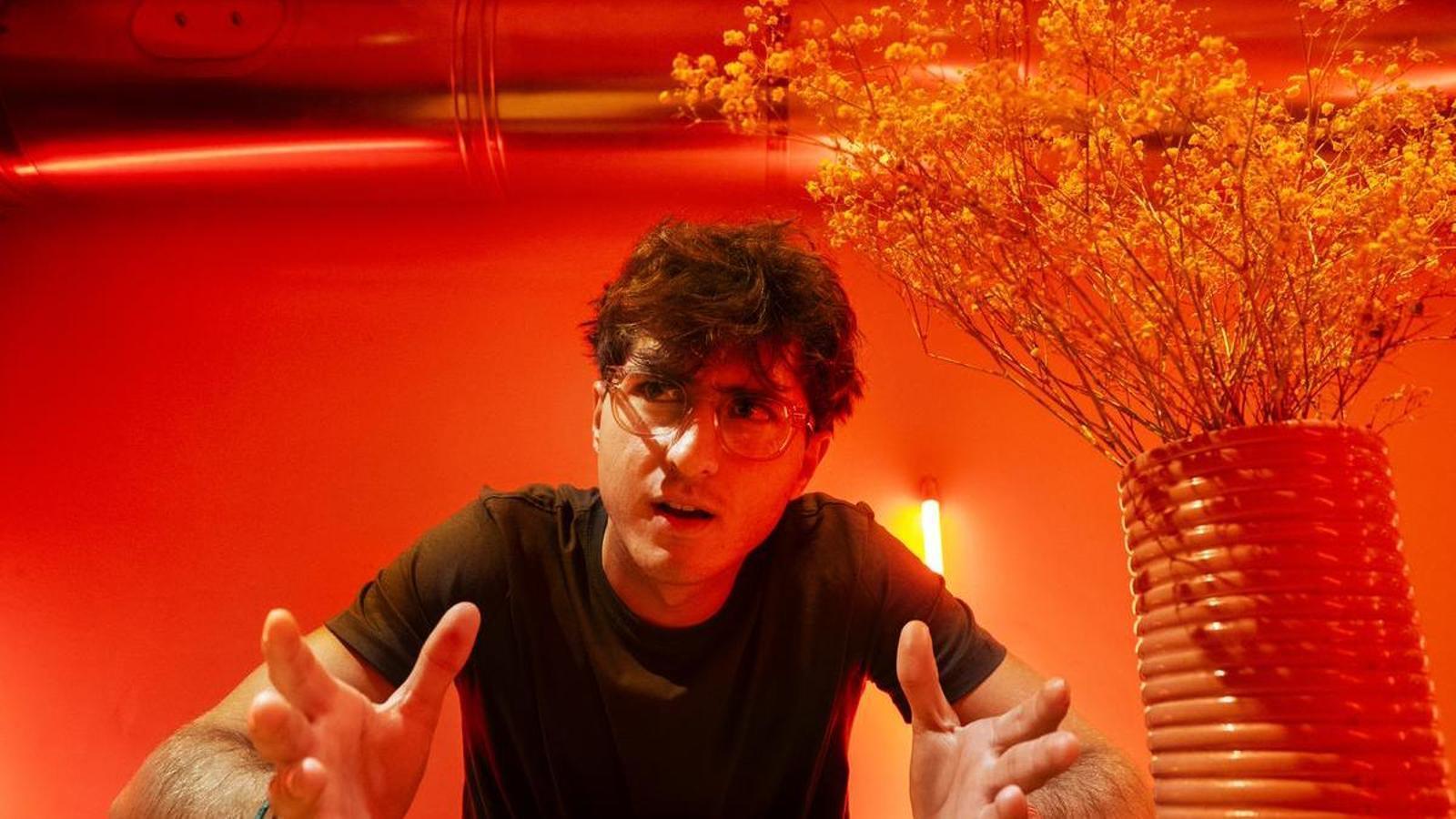"Starting in September, a new nightclub is born in Luz de Gas."
Genís Cargol is a creative director, cultural entrepreneur and former footballer.


He branding It's not just a logo, but the story a brand tells and the emotional connection it's capable of creating. Trained in graphic and product design, Genís Cargol (Olot, 2001) is turning this idea into the driving force behind his career, which has spanned brands such as Desigual, Pull&Bear, and Nude Project, where his role goes far beyond design; he also directs the construction of identities and narratives for projects.
Interestingly, before his professional career, Cargol had a career as a footballer, playing in the youth teams of Olot, Girona, and Damm, and in the first teams of Igualada, Castelldefels, Sant Andreu, and Vilafranca. However, he hung up his boots, convinced that the sacrifice was no longer worth it. "I decided to dedicate my energy to new challenges," he confesses. In fact, he's currently immersed in an important one: the renovation of an iconic Barcelona leisure venue. "Starting in September, Luz de Gas is reinventing itself. I am in charge of the branding and the new brand concept. Let's not change the name, but everything it represents to connect with the new generation." The retirement ofFede Sardà At the end of last year, a new phase began in the management of this iconic venue. The goal is to carry forward "a continuing project." explained to ARA Juan Sánchez, representing the new owners. "It's a challenge to adapt an icon to the new trends and needs of today's public," admits Cargol.
Mimus is another example of their commitment to entertainment with a narrative. It's a new party, born precisely in Luz de Gas. "A cultural hub where young Catalans gather, looking for a space to express themselves and connect." It was born from a commission to fill Thursdays and has ended up becoming a movement that rejuvenates the venue and creates a cultural network. "I'm in charge of the creative and artistic direction, and the creation of the brand. I came up with the name, the brand, the story, and the identity." In parallel, Bar Bocata, where we are located, expands this ecosystem with a gastronomic and experimental format. "It's a confluence, a communication network between young, proactive Catalans. People come from all over who want to network and meet other people." Caracol emphasizes the importance of teamwork: "I've been able to do it with my friends. The important thing is who you surround yourself with."
A new cultural scene
Genís Cargol emphasizes that these initiatives are not just showcases: "We create community, we weave networks, and we connect generations." He believes that leisure is a space that brings together people from different social backgrounds and identities and reflects the plurality of Barcelona society. "Barcelona's cultural ecosystem is better than it was a few years ago; it's in full evolution and is born from a real need to create community and spaces where Catalan culture is the protagonist." In his opinion, this new cultural era, which has already reached music, is being transferred to leisure and also to the way of doing business. "It's a more cool, metropolitan and quite depoliticized; but it is necessary to recognize and respect the generations that have preceded us. We are surrounded by cultural references."
He doesn't do it alone: "We have a heterogeneous team that shares values and vision. This is key to a sustainable creative ecosystem." For Cargol, entrepreneurship is an attitude that requires persistence and adaptability, and mistakes are as valuable as achievements. "I haven't had any communication failures, but I have had business ones: we tried to start a clothing brand and it didn't work out due to a lack of commitment. We didn't put enough effort into it." In this sense, he admits that "here we lack a bit of the American mentality, which is not afraid of making mistakes, of being frowned upon, and of defending your ideas and principles." In any case, he affirms that young people have a great capacity to take risks and project themselves through social media. He believes that Catalan entrepreneurial capacity "is being lost." "The problem is starting a business in Catalan. It's difficult to take the initiative in our own language, although Catalan culture needs to interrelate with other languages, not just Spanish. English creates an aspirational image, for example. Leisure in Catalan needs to be hybrid," he asserts.
In this sense, Genís Cargol envisions a cultural and creative Catalonia, with an urban aesthetic that breaks stereotypes and puts innovation first. Even so, he sees himself taking risks: "I want to do things that are different from what I'm doing today. I like to do new things. And moving beyond this, why not?"
